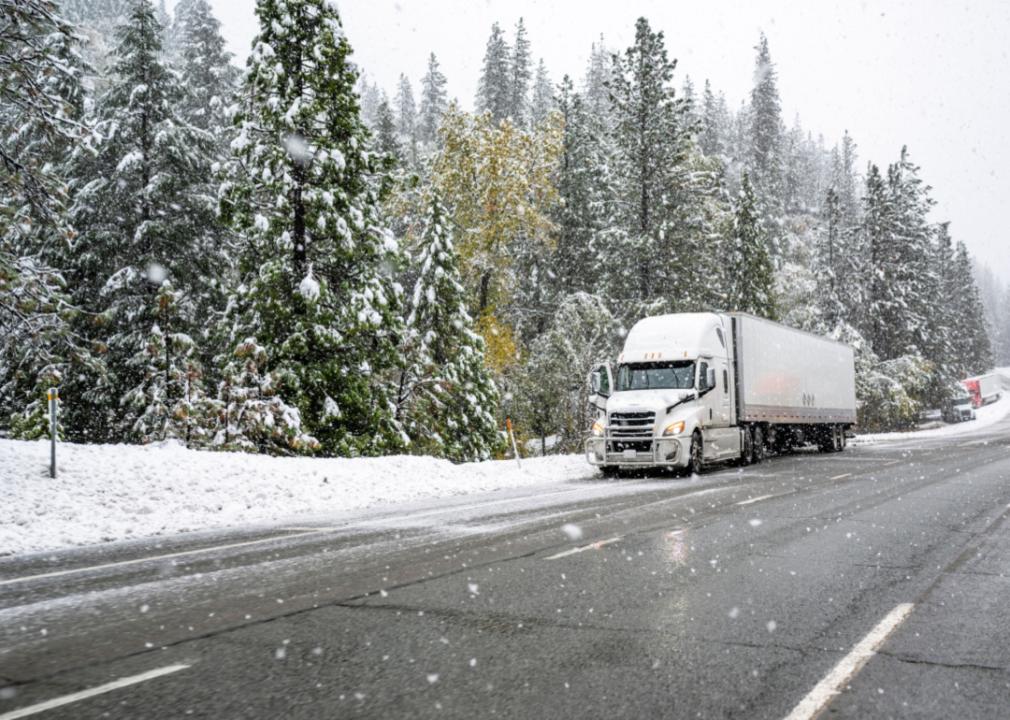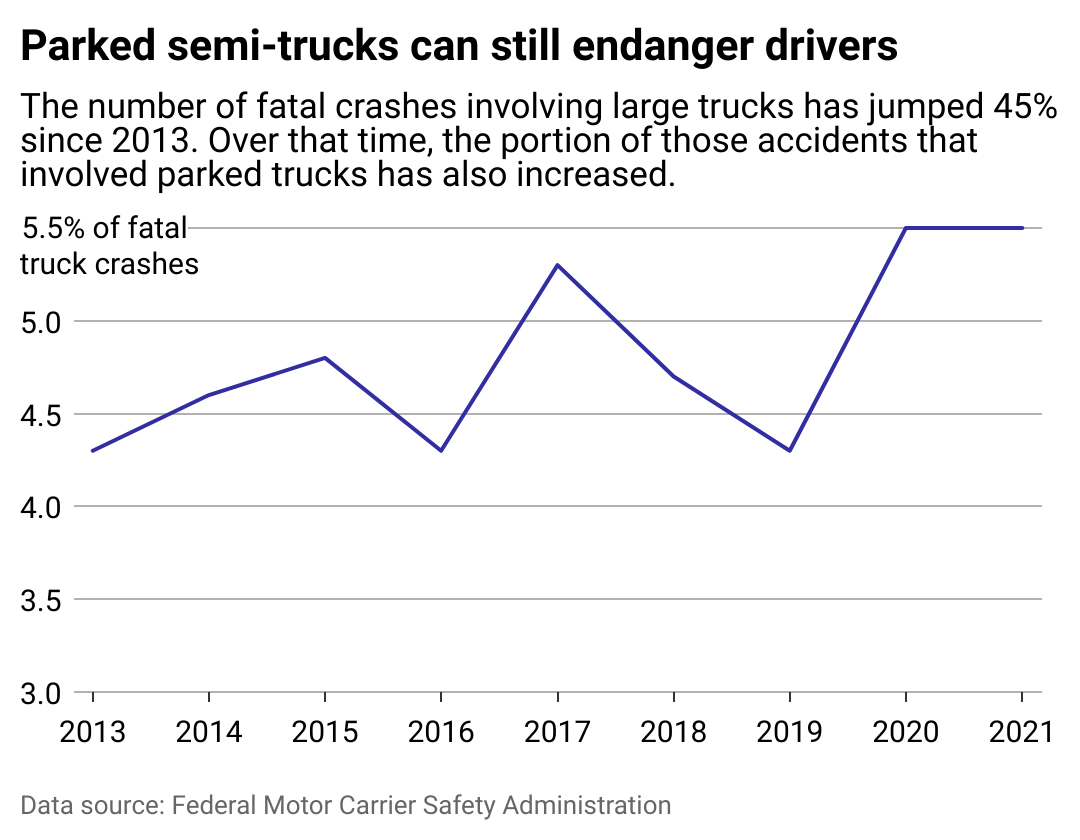
In 2023, a Greyhound bus exiting an Illinois highway collided with three semi-trucks parked along an exit ramp, killing three bus passengers. That same year, a woman in Modesto, California, crashed into a parked truck and subsequently died. In 2021, a man in North Carolina was hospitalized after hitting a trailer while swerving to miss a parked semi-truck. His car then caught fire.
According to the U.S. Department of Transportation, there is only one truck parking space for every 11 truck drivers. They are integral to the economy Americans have grown to depend on—providing transit for more than 70% of the country's shipping needs. Yet, truck drivers are left scrambling for parking—and the effects of this parking shortage aren't limited to truckers.
Truckers make possible next-day deliveries, rapid grocery restocking, and other logistical business needs. When truck drivers face problems getting their jobs done safely and efficiently, the repercussions tend to roll down to consumers and the public with whom they share roadways.
Today, a glaring shortage of places to park their vehicles poses a problem for an industry that's grown in recent years. Truck Parking Club used data from the Federal Motor Carrier Safety Administration to illustrate the preventable risk posed to all drivers when trucks must park in undesignated areas.
A truck driver might park to get vital rest in their vehicle's cab or store their truck before hitting the road again. Though it may seem like an issue affecting only the truck drivers, the impact of fewer places to park semi-trucks has proven to be a problem for the rest of America, too.
There is an increased potential for loss of life when truck drivers can't get the recommended rest between shifts regulated by federal agencies. A 2006 Federal Motor Carrier Safety Administration study found an association between driver fatigue and 13% of serious commercial truck accidents.
Fatigue isn't the only safety concern, however. Truck drivers also risk being hit by motorists caught off guard by a large truck parked in an undesignated spot. Without assigned space, truckers have resorted to parking on the shoulder of roads, along highway exits, and near residential neighborhoods. Data show that these incidents aren't rare. In 2021, there were 295 fatal collisions with parked and working trucks, resulting in 338 deaths.

Communities are searching for remedies that improve public safety and keep goods flowing to their destinations.
Pennsylvania officials acknowledged that a lack of truck parking hurts drivers' ability to earn a living and poses a potential safety hazard. Creating industrial spaces with parking lots and expanding rest stop parking are two of the 19 possible solutions they've considered.
The number of trucks on roads means any investment in parking could be sizable. In the U.S., 1 in 20 registered vehicles is a commercial truck, totaling nearly 14 million, according to the American Trucking Associations.
Several federal funding opportunities are available for building out these kinds of spaces. They include the Rebuilding American Infrastructure with Sustainability and Equity discretionary grant program, which has received $1.5 billion in funding through 2024.
Associations representing truck drivers have also championed a bill introduced in Congress in 2023 called the Truck Parking Safety Improvement Act. If passed in the House and Senate, it will put $755 million toward building free, public truck parking across the country over the next three years.
In a 2019 article, researchers at the University of Kentucky found that commercial trucking accidents where the truck driver was at fault were more likely to occur the further away a driver was from the nearest rest stop. Research like this suggests that improving truck parking at rest stops and gas stations could thus help twofold, giving truckers more opportunities to get needed sleep to be vigilant on roadways.
Story editing by Shannon Luders-Manuel. Copy editing by Kristen Wegrzyn.
This story originally appeared on Truck Parking Club and was produced and distributed in partnership with Stacker Studio.